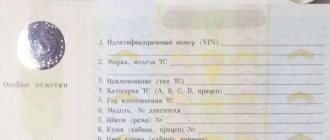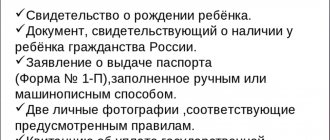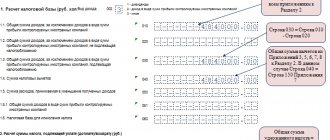State duty is a fee that must be paid by persons who apply to specialized authorities. The list of persons who must pay the state duty, as well as organizations that have the right to demand it, is indicated in Article 333.17 of the current Code. For example, some local governments and even officials may charge a state fee. Provided that they were given these rights by specialized acts. Although, for example, consular authorities of the Russian Federation cannot charge for their services.
State duty payers - who are they?
There are different types of state fees that certain individuals must pay. But before we look at each type, it doesn’t hurt to consider who exactly can pay the duty:
- Organizations;
- Individuals.
There are several reservations regarding the circumstances under which state fees can be paid by legal entities. To obtain the right in question, they must comply with the following conditions:
- Carry out the action required by law.
- Be a defendant in legal proceedings. The decision was made in favor of the plaintiff, who in this case is exempt from having to pay the fee.
Now we can consider the most common types of state duties.
Courts and fees
If the court decision is made in favor of the defendant, then the state fee is not reimbursed to the plaintiff. If the plaintiff wins the case, then the state fee is returned to him by the defendant by court decision (taking into account that the plaintiff asks the court about this).
For cases heard in courts of general jurisdiction by magistrates, the state fee is paid in the following amounts:
1) when filing a claim of a property nature subject to assessment, with the price of the claim:
up to 20,000 rubles - 4 percent of the claim price, but not less than 400 rubles;
from 20,001 rubles to 100,000 rubles - 800 rubles plus 3 percent of the amount exceeding 20,000 rubles;
from 100,001 rubles to 200,000 rubles - 3,200 rubles plus 2 percent of the amount exceeding 100,000 rubles;
from 200,001 rubles to 1,000,000 rubles - 5,200 rubles plus 1 percent of the amount exceeding 200,000 rubles;
over 1,000,000 rubles - 13,200 rubles plus 0.5 percent of the amount exceeding 1,000,000 rubles, but not more than 60,000 rubles;
2) when filing an application for a court order - 50 percent of the amount of the state duty collected when filing a claim of a property nature;
3) when filing a claim of a property nature that is not subject to assessment, as well as a claim of a non-property nature:
for individuals - 200 rubles;
for organizations - 4,000 rubles;
4) when filing a supervisory complaint - in the amount of the state duty paid when filing a claim of a non-property nature;
5) when filing a claim for divorce - 400 rubles;
6) when filing an application to challenge (in whole or in part) regulatory legal acts of state authorities, local governments or officials:
for individuals - 200 rubles;
for organizations - 3,000 rubles;
7) when filing an application to challenge a decision or action (inaction) of state authorities, local governments, officials, state or municipal employees who have violated the rights and freedoms of citizens or organizations - 200 rubles;
 when filing an application in cases of special proceedings - 200 rubles;
when filing an application in cases of special proceedings - 200 rubles;
9) when filing an appeal and (or) a cassation complaint - 50 percent of the amount of the state duty payable when filing a claim of a non-property nature;
10) does not apply from January 1, 2013;
11) when filing an application for the issuance of writs of execution for the forced execution of arbitration court decisions - 1,500 rubles;
12) when filing an application to secure a claim being considered in an arbitration court - 200 rubles;
13) when filing an application to cancel the decision of the arbitration court - 1,500 rubles;
14) when filing an application in cases of alimony collection - 100 rubles. If the court makes a decision to collect alimony both for the maintenance of children and for the maintenance of the plaintiff, the amount of the state duty is doubled;
15) when filing an application for an award of compensation for violation of the right to legal proceedings within a reasonable time or the right to execution of a judicial act within a reasonable time:
for individuals - 200 rubles;
for organizations - 4,000 rubles.
General jurisdiction
The following are exempt from paying state fees in cases heard in courts of general jurisdiction, as well as by magistrates:
- plaintiffs - in claims for the recovery of wages (monetary support) and other claims arising from labor relations, as well as in claims for the recovery of benefits;
- plaintiffs - in claims for alimony;
- plaintiffs - in claims for compensation for damage caused by injury or other damage to health, as well as the death of the breadwinner;
- plaintiffs - in claims for compensation for property and (or) moral damage caused by the crime;
- organizations and individuals - for issuing documents to them in connection with criminal cases and cases of alimony collection;
- parties - when filing appeals, cassation complaints in claims for divorce and other categories of persons provided for in Art. 333.36 Tax Code of the Russian Federation.
Calculation and payment of state duty: postings
In the records of payment of state duties in the postings, invoice correspondence is used. 51 and 68:
Dt 68/state duty Kt 51.
However, in practice there are often situations when the state duty is paid not from the company’s current account, but in cash through its representative. Are such actions legal? The answer to this question is given to us by the letter of the Department of Tax and Customs Tariff Policy of the Ministry of Finance of the Russian Federation dated 06/01/2012 No. 03-05-04-03/43, in which officials confirmed the competence of such actions. At the same time, when paying the state duty, it is necessary to attach documents to the payment receipt confirming that the funds paid belong to the company performing the action for which the state duty is charged. This may be a power of attorney for the representative, copies of constituent documents, an expenditure order for the issuance of cash to the representative to pay the state duty.
Accounting entries for payment of state duty in this case will have the following form:
Dt 71 Kt 50 - cash was issued for reporting to the representative;
Dt 20 (23, 25, 26, 44, 91.2) Kt 71 - reflects the amount of state duty paid.
Duty deferment
When going to court, payment of the state fee may be delayed, spread out, or its amount may be reduced. The basis for this may be the property status of the state duty payer.
To obtain a deferment, installment plan or exemption from payment, simultaneously with the claim (complaint), it is necessary to submit an appropriate application accompanied by documents on the property status.
In addition to the courts, state fees are paid for performing notarial acts; for state registration of acts of civil status; for performing actions related to the acquisition of citizenship or withdrawal from it; for registration of real estate transactions and transfer of rights to real estate; for registration of legal entities and making changes to the state register of legal entities.
- < Back
- Forward >
What to do if you receive a notification from the bailiffs
When a notice arrives with a requirement to repay the state duty awarded by the court, first of all, it is worth thinking and remembering whether there are any debts to any government or financial authorities.
Because if there are any, then the fee will most likely have to be repaid. However, it is important to clarify that in this case, in addition to the penalty order, the citizen must also be sent a copy of the issued order. It is recommended to follow this algorithm:
- Call or appear in person at the bailiff service. Here you should ask questions and request a writ of execution. The document must indicate on what basis the duty is collected, and who exactly initiated the writ proceedings.
- Find out if there is a debt. If there really is one, then you should immediately pay it off. Otherwise, it is possible that additional fines and penalties will be assessed; in short, non-payment will lead to financial losses.
- List the awarded amount of state duty. Moreover, it is best to carry out the operation within the time frame indicated in the notice. Otherwise, an enforcement fee will be added to the amount of the monetary penalty.
In general, errors in the system occur frequently, so if the situation occurs, do not delay. It’s better to immediately contact the bailiffs and find out what’s wrong. Especially if the recipient of the duty collection notice has no idea what it is about. It is possible that a particular person is generally not relevant to the matter. For example, he may have a namesake. In a word, it’s definitely worth understanding.
State duty charged when purchasing property: which accounting account is used
The state duty paid upon the acquisition (creation) of property objects relates to an increase in their actual value (clause 8 of PBU 14/2007, clause 8 of PBU 6/01):
Dt 08 Kt 68/state duty.
Such records will be used, for example, when paying state fees in connection with the registration of an acquired fixed asset.
Read about fixed asset accounting in this material.
The procedure for issuing a writ of execution
You can receive the document only after the decision has entered into legal force (30 days are given to appeal). If the IL is issued before the established deadline, it will be considered void and subject to revocation. An exception to the rules of a court decision, which must be executed immediately after announcement. For example, labor disputes, salary shortfalls, alimony, etc.
The applicant himself or an authorized representative can receive the IL. Also, at the request of the claimant, the transfer of the sheet for execution can be carried out by the court
To obtain a writ of execution yourself, you should consider a number of aspects:
- the appeal on this issue is submitted in 2 copies, one of which is sent to the court, and the second remains with you. Your copy must be marked with acceptance of the application (a sample for issuing a sheet can be obtained from our lawyers);
- the paper can be submitted in person or sent by registered mail with an inventory of the contents and a receipt confirming the transfer;
- an application for an executive document (IL) may contain a method for obtaining the document in court, by mail or through bailiffs.
In judicial practice, there are cases when the court is delayed in issuing a certificate. In such a situation, you should send a complaint to the chairman of the court, on the basis of which an internal review will be carried out.
Note!
If, when studying a document, you find shortcomings or errors, it may be invalidated.
If the debtor/collector does not understand something in the IL, they can send a request for clarification of the document. It is reviewed within 10 days.
Duty fee: what is it?
State duty in a broad sense is a monetary fee that any citizen or legal entity is obliged to pay in the event of filing a claim with the bodies of arbitration, constitutional courts and courts of general jurisdiction. Also, such fees require payment when receiving some government services. For example, when registering property rights or conducting an official marriage ceremony.
Moreover, it will not be possible to evade paying the state duty, because without a receipt confirming the monetary transaction, the citizen’s application will simply not be accepted for consideration. An exception is made for certain categories of persons with beneficiary status.
Repayment of the fee is carried out at any banking institution through a cash desk or through Internet banking. Also, a number of organizations provide special terminals for the convenience of visitors.
Accounting for state duties on transactions not related to the main activity
The state duty for carrying out actions not related to the main activity of the company should be charged to other expenses (clause 11 of PBU 10/99):
Dt 91.2 Kt 68/state duty.
Such an entry will be used, in particular, when calculating the state duty paid upon the alienation of certain types of assets (clause 11 of PBU 10/99).
The state duty paid for participation in the trial is taken into account in the same way.
For tax accounting of other expenses, see our material.
Benefits when paying state duty
Claimants do not pay state duty for the following claims:
- labor disputes;
- adoption of children;
- collection of benefits;
- collection of alimony;
- compensation for harm to health;
- compensation for harm from crimes;
- complaints against bailiffs;
- unlawful criminal prosecution;
- demand for the protection of children's rights;
- non-property demands in defense of the rights of people with disabilities;
- appointment of hospitalization in a psychiatric hospital.
The fee is not paid if the value of the statement of claim is less than one million rubles by the following categories of payers:
- public organizations of disabled people;
- disabled people of groups 1 and 2;
- consumer rights plaintiffs;
- by veterans in protecting personal rights under veterans laws;
- pensioners on claims against pension institutions.
Citizens do not pay state fees when filing appeals and cassation complaints regarding decisions on divorce. State fees to courts are not paid by state authorities and local governments.
Actions to take when receiving a notification
Along with the notification, the competent bailiff sends the debtor a copy of the court order. The contents of the document indicate within the framework of which enforcement proceedings the money is collected. This will allow the citizen to become familiar with the legality of the grounds for claiming funds. The further procedure will be as follows:
- Personal appeal to the FSSP. This is necessary in order to confirm that the writ of execution was sent by the FSSP service and is not the result of the work of fraudsters. This can be done by calling your office phone. An employee of the bailiff service informs the conditions under which the need to pay the state fee arises.
- Clarification of information about the presence of related financial obligations. This applies to fines owed to banks (mortgage lending, consumer loans), individuals (alimony), and government organizations (unpaid fines). If there are such obligations, the main body of the debt, additional fines and penalties must be repaid in a timely manner.
- Depositing funds towards state duty. The letter from the FSSP indicates the date by which the money must be deposited. If deadlines are violated, an additional penalty will be charged.
In practice, situations occur when FSSP notices are sent to citizens by mistake. This may be due to the same personal information or lack of information about a previously made payment. Therefore, you need to figure it out before paying.
How much does it cost to register a car in 2021?
The state fee for registering a car in 2021 depends on whether you will issue a new license plate and receive a new title. Registration of a document about a registered car costs 500 rubles. Registration of new state rooms - 2000 rubles. Obtaining a PTS - 800 rubles.
So, how much does it cost to register a car? Let's look at all calculation options:
- Registration of a car with the State Traffic Safety Inspectorate with valid license plates and PTS (there is a free space in the technical passport for recording new data). Editing data in the PTS (350 rubles) + document on the registered vehicle (500 rubles) = 850 rubles.
- Registration of a car with valid license plates and replacement of technical numbers. passports (there is no free space for entry). Editing data in the PTS (350 rubles) + document on the registered vehicle (500 rubles) + new PTS (800 rubles) = 1650 rubles.
- Registration of a car without license plates and with replacement of technical numbers. passports (no entry field). Obtaining a document on a registered vehicle (500 rubles) + registration of a title (800 rubles) + obtaining license plates (2000 rubles) = 3300 rubles.
- Registration of a new car with the traffic police. Editing data in the PTS (350 rubles) + document on the registered vehicle (500 rubles) + obtaining license plates (2000 rubles) = 2850 rubles.
Do not forget that expenses will haunt you even before paying the state fee. The car must first be taken for a technical inspection, and then a compulsory motor liability insurance must be issued.
Note! Even before concluding a purchase and sale agreement, we also advise you to check the owner of the car through a special service. The check will show whether the seller has problems with the law, whether his passport is valid, whether there are debts and enforcement proceedings. If serious problems are discovered, it is better to refuse the deal. View an example report
Features of the application of types of expenses and KOSGU when paying legal expenses
From 01/01/2020, public sector institutions, when determining KOSGU codes, use the Procedure approved by Order of the Ministry of Finance of Russia dated 06/06/2019 N 85n. It replaced the Procedure approved by Order of the Ministry of Finance of Russia dated June 8, 2018 N 132n (valid in 2019). The procedure for applying KOSGU is regulated by Order of the Ministry of Finance of Russia dated November 29, 2017 N 209n.
An essential condition for the application of KOSGU in terms of legal costs is the following:
- expenses related to unfulfilled obligations (accounts payable), in particular, for the payment of pensions, benefits, staff salaries, as well as for payment of accounts payable under contracts for the supply of goods, performance of work, provision of services for state (municipal) needs are reflected in the corresponding groups , articles and subarticles of KOSGU;
- expenses in terms of compensation for legal costs to plaintiffs, moral damages, and unjust enrichment are reflected in subarticles 296 “Other payments of a current nature to individuals” and 297 “Other payments of a current nature to organizations” of the KOSGU.
For the purposes of applying the CVR to reflect legal expenses, a similar rule applies. In accordance with the description of the code of types of expenses 831 “Execution of judicial acts of the Russian Federation and settlement agreements on compensation for harm caused,” expenses for the execution of judicial acts on claims for the payment of pensions, benefits, wages for employees of institutions, as well as for payment of accounts payable under supply contracts goods, performance of work, provision of services for state (municipal) needs, etc., are subject to reflection in the appropriate groups, subgroups and elements of types of expenses.
Next, we will analyze these rules and the procedure for applying budget classification in more detail.
Definition of the concept
The state fee is one of the obligatory items of legal expenses. A number of legislative acts consolidate this statement and include:
- Article 88 of the Civil Procedure Code of the Russian Federation;
- Article 103 of the Code of Administrative Proceedings of the Russian Federation;
- Chapter 2 of the Tax Code of the Russian Federation and others.
Using the first two codes mentioned above, the value of the claim is determined, as well as the circumstances under which additional fees are paid. The points of the procedural code are established by the procedure for the distribution and collection of various legal costs (which include the fee paid when filing a claim in court).
Article 88 of the Code of Civil Procedure of the Russian Federation
The Tax Code stipulates the following details of payment of state fees during legal proceedings:
- general fees;
- methods of payment of duties;
- categories of citizens who are granted duty benefits;
- circumstances providing for deferment or installment plan;
- circumstances providing for the return of the amount paid for the fee.










